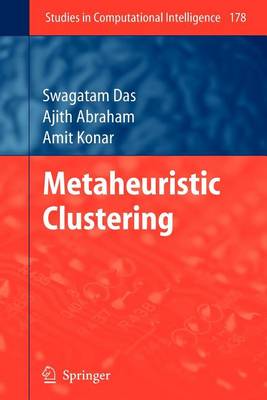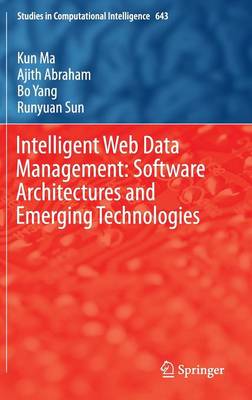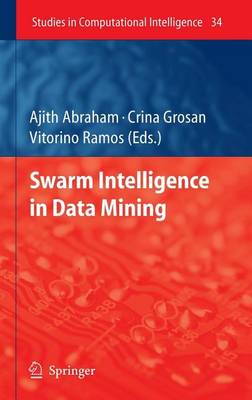Studies in Computational Intelligence
4 primary works • 5 total works
Book 24
Parallel and Distributed Logic Programming
by Alakananda Bhattacharya, Amit Konar, and Ajit K Mandal
This book introduces the parallel and distributed approach to logic programming, examining existing models of distributed logic programming, and proposing an alternative framework for distributed logic programming using extended Petri nets. The hardwired realization of the Petri net based framework is presented in detail, and principles of mapping of a logic program on to the proposed framework are outlined. Finally, the book explores the scope of Petri net models in designing next-generation deductive database machines.
Book 178
Cluster analysis means the organization of an unlabeled collection of objects or patterns into separate groups based on their similarity. The task of computerized data clustering has been approached from diverse domains of knowledge like graph theory, multivariate analysis, neural networks, fuzzy set theory, and so on. Clustering is often described as an unsupervised learning method but most of the traditional algorithms require a prior specification of the number of clusters in the data for guiding the partitioning process, thus making it not completely unsupervised. Modern data mining tools that predict future trends and behaviors for allowing businesses to make proactive and knowledge-driven decisions, demand fast and fully automatic clustering of very large datasets with minimal or no user intervention.
In this volume, we formulate clustering as an optimization problem, where the best partitioning of a given dataset is achieved by minimizing/maximizing one (single-objective clustering) or more (multi-objective clustering) objective functions. Using several real world applications, we illustrate the performance of several metaheuristics, particularly the Differential Evolution algorithm when applied to both single and multi-objective clustering problems, where the number of clusters is not known beforehand and must be determined on the run. This volume comprises of 7 chapters including an introductory chapter giving the fundamental definitions and the last Chapter provides some important research challenges.
Academics, scientists as well as engineers engaged in research, development and application of optimization techniques and data mining will find the comprehensive coverage of this book invaluable.
Book 234
Book 643
Intelligent Web Data Management: Software Architectures and Emerging Technologies
by Kun Ma, Ajith Abraham, Bo Yang, and Runyuan Sun
This book presents some of the emerging techniques and technologies used to handle Web data management. Authors present novel software architectures and emerging technologies and then validate using experimental data and real world applications. The contents of this book are focused on four popular thematic categories of intelligent Web data management: cloud computing, social networking, monitoring and literature management. The Volume will be a valuable reference to researchers, students and practitioners in the field of Web data management, cloud computing, social networks using advanced intelligence tools.




